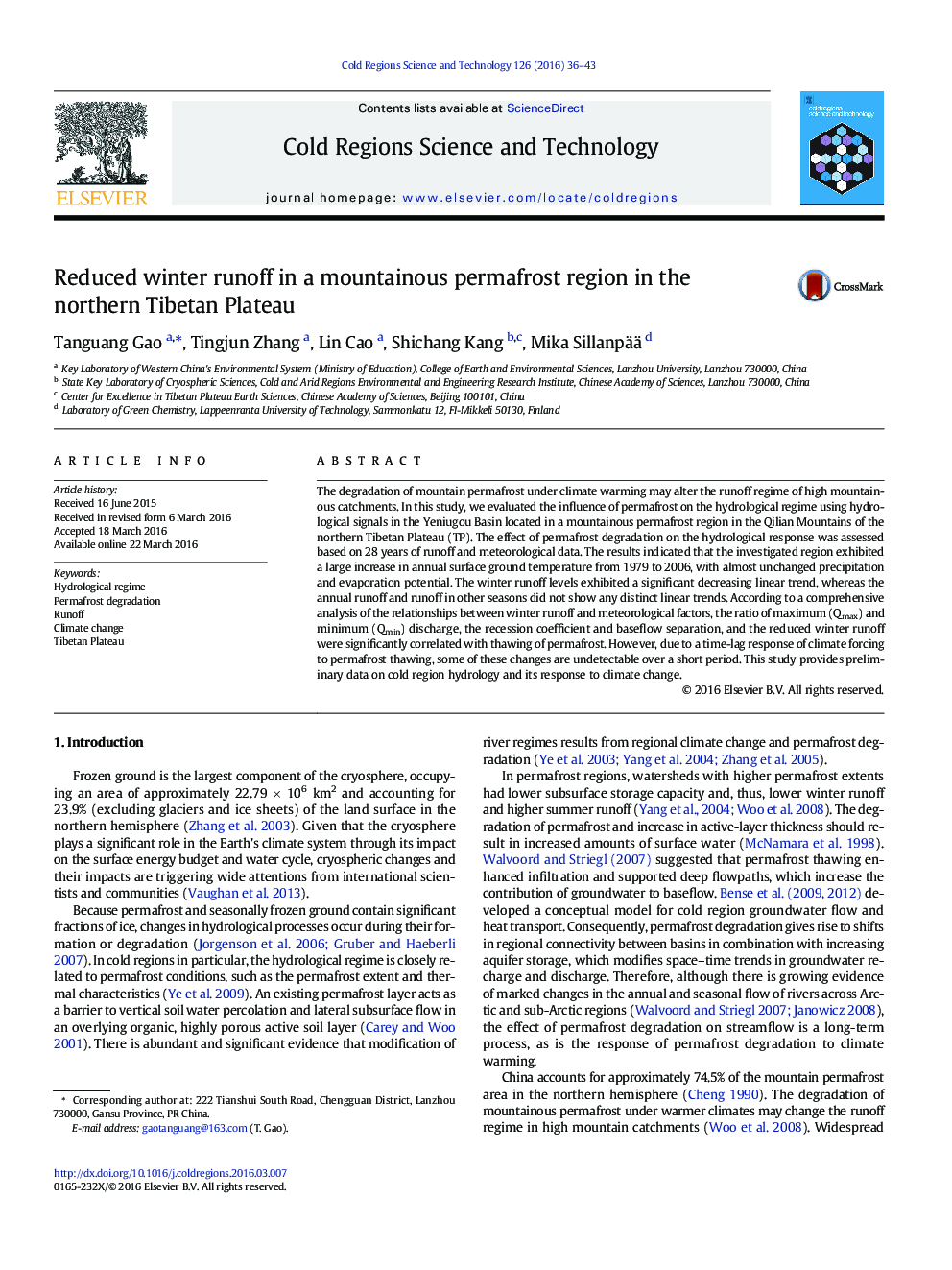| Article ID | Journal | Published Year | Pages | File Type |
|---|---|---|---|---|
| 6426582 | Cold Regions Science and Technology | 2016 | 8 Pages |
â¢Hydrological data are analyzed to determine the impact of permafrost degradation on hydrological regime.â¢Winter runoff is reduced in mountain permafrost regime of northern Tibetan Plateau.â¢Reduced winter runoff is mainly attributed to the permafrost thawing.
The degradation of mountain permafrost under climate warming may alter the runoff regime of high mountainous catchments. In this study, we evaluated the influence of permafrost on the hydrological regime using hydrological signals in the Yeniugou Basin located in a mountainous permafrost region in the Qilian Mountains of the northern Tibetan Plateau (TP). The effect of permafrost degradation on the hydrological response was assessed based on 28Â years of runoff and meteorological data. The results indicated that the investigated region exhibited a large increase in annual surface ground temperature from 1979 to 2006, with almost unchanged precipitation and evaporation potential. The winter runoff levels exhibited a significant decreasing linear trend, whereas the annual runoff and runoff in other seasons did not show any distinct linear trends. According to a comprehensive analysis of the relationships between winter runoff and meteorological factors, the ratio of maximum (Qmax) and minimum (Qmin) discharge, the recession coefficient and baseflow separation, and the reduced winter runoff were significantly correlated with thawing of permafrost. However, due to a time-lag response of climate forcing to permafrost thawing, some of these changes are undetectable over a short period. This study provides preliminary data on cold region hydrology and its response to climate change.
